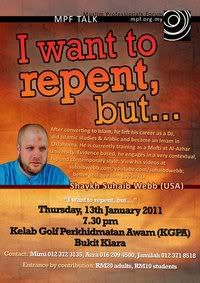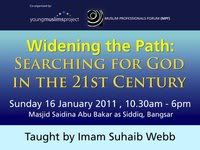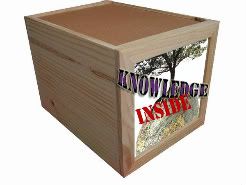
By Diana Appleyard and Rachel Halliwell
Sarah, who grew up in London, says: When I was 14, my brother married a Muslim girl whom he'd met at a party, and he converted to Islam. It made me realise I had a lot of prejudices.
To me, Islam was all about terrorism, hijackings and men being able to divorce women by simply saying it three times. And yet there was my beautiful, gentle sister-in-law, and soon my lovely, sweet niece. None of it added up.
I realised there was so much ignorance out there and it angered me. I started reading books about Islam and asking Muslims questions.
Meanwhile, I was being educated in Mayfair and Chelsea, and my friends had the usual teenage interests, although I went to a Catholic school so there weren't too many parties.
My father was an accountant and my mother ran a model agency, and I was surrounded by incredibly beautiful, slim women. My teenage years were full of glitz and glamour.
My mother was a Roman Catholic, but I was at that age when I questioned everything fiercely, and I realised I no longer believed in the Catholic faith - I could not accept papal infallibility and original sin.
By the age of 17, I began to feel that there were obvious pressures on women in Western society to look slim and beautiful, and that didn't have any relevance to me.
The more I studied the Koran over several months, the more I realised that Islam held many truths which I found admirable.
I had always believed in God, and here was this very simple religion with a clear, powerful doctrine. There weren't the complications and traditions of the Roman Catholic faith, just the strong, simple belief in the one God.
It took me several years to decide to convert, and I did face some prejudice. People seem frightened of the religion because they don't understand it.
I started attending the mosque in Regent's Park, and I was made very welcome by the Imam. I began wearing the hijab because that is an obligation to cover your head and dress modestly. At first I felt uncomfortable, as if everyone was staring at me in a negative way. But gradually I got used to it and it is no longer an issue for me.
As I've got older, the lifestyle choices - not drinking, having a very close family life and not being exposed to the decadent elements of Western society - have become a welcome part of my life.
But my parents found my conversion hard to accept. It was, in a way, a bereavement to them - they felt they had lost their child to Islam. It took me a long time to convince them that actually Islam was an extension of all the things they had brought me up to believe in: good citizenship, community, the importance of home and family.
I utterly condemn women being forced by men or society to wear the jilbab or niqab - that is wrong.
It should be about choice, not an imposition of society.
After September 11, my husband and I went on the road for a year with the children, lecturing up and down the country to condemn the terrorist actions. I am totally against oppression.
When I am wearing the veil, I feel as if I am not judged so much on my looks. It's liberating rather than oppressive. I find it empowering - I am judged by what I have to say, not what I look like.
I try to look smart, without wearing anything revealing or figure hugging. To go out, I tend to dress in demure Laura Ashley clothes as well as the hijab.
At home, my husband and I have a normal relationship - he is a very relaxed, modern man and we share the childcare and domestic duties.
I've found that not being obsessed with the way I look, allied to the clear, simple faith of Islam, gives me far more time to get on with the important things in life - family, work and friends.
INTERVIEW WITH SARAH JOSEPH
-readingislam.com
-readingislam.com
Q: Could you please tell us what made you convert to Islam and elaborate more on your first experiences (postive/negative) when you first become a Muslim.
A: I was a practicing Roman Catholic. I was a very serious teenager into social issues, politics and religion. My faith meant a lot to me and it impacted on my social conscience. My family were Liberals though and not religious. My Mother says that I was always religious - since I was tiny child.
When I was about 13 my brother embraced Islam to get married. I was very angry with him. I felt that he had sold his hereafter for a marriage. I was also very scared for him because Islam was so alien, and I had a lot of negative views about it. I had been brought up to never be prejudice however, and it felt uncomfortable to have these negative feelings. I knew that I was fearly of the unknown and that fear was caused by ignorance. I decided to find out more about Islam but was never told anything accurate. This made me more curious - 'how come no one knows anything about this religion?' I thought.
So I set about finding more and one question led to another.
A bit later on I ceased to be a Catholic. This had nothing to do with Islam but was due to the rule of Papal Infallibility. I could not accept that this rule which is so central had come about because of the unification of Italy. I also had problems with the notion of Original Sin and its implications for the Crucifiction.
I did not become a Muslim though - did not want to become one. It seems so much hassle.
So I continued my life - neither a Muslim nor as a Christian. Rather I just tried to submit to God. There was something though that kept me pulling towards Islam. It kept answering my questions - a simple belief in One God, the position of Christ - born of a Virgin through the power of God, but not because of his Divinity. Also, the Qur'an unchanged.
The final thing which made me accept Islam was seeing someone pray. As they went down into prostration - I thought that "this is submission". And sumitting to God was what I wanted.
It was hard in the beginning. I have always tested my faith. But ultimately Islam makes no gratuitous demands on my logic. It appeals to my logic as well as my heart. And I have never not found an answer to a question.
Q: How did your family react to your embracing Islam and did their reaction affect your resolve?
A: My family took my conversion quite hard. They are Liberals - and had brought me up not to be prejudice and to be anything that I wanted. When I told them that I wanted Islam - they found it hard because of their view of Islam as something which was backward, violent and oppressed women.
Also, because I took on the hijab right from the beginning, they found that really hard. If I had not worn it straight then it would have been easier - but I wanted to. I think that I was very forceful in my wanting to be a Muslim - maybe too forceful in many ways. I could have been more tactful and that would have been better. It took many years for them to eventually come round - but now they are very happy. They are happy about the way I live my life and that is good. Although they show no signs of embracing Islam themselves.
Q: Sister what do you feel after embracing Islam? What do you think about the purpose of life?
A: Life is to try and purify your soul and to gain the acceptance and pleasure of Allah (swt).
Islam is for me the simplest way to access God.
I feel we need to focus on the purpose rather than just the dogma. And as the Qur'an was dedicated to those who think - we must think about our actions.
IAW LAUNCH SPEECH BY SARAH JOSEPH
http://www.mcb.org.uk
http://www.mcb.org.uk
Thirteen years ago I became drawn to the simple faith of Islam: "believe in God and thereafter be upright". Little did I know then that that decision would lead me to the life it has. A life, where for at least ten of those years, I have been asked to explain my faith and articulate its message of peace and justice.
I have never ever felt that there is a conflict with me as a Briton and me as a Muslim. God made me English, and I don't question His motives for doing so. As an English woman, I grew up knowing my rights and my duties, and I feel an intense sense of social obligation towards my community and my society, which my faith enhances and increases.
Yet so easily, my loyalty to my country and my fellow country men are called into question. Indeed my very "right" to be here is called into question. The less well educated offer the suggestion that I "bleep off back to my own country"; some broadsheet columnists and commentators politely suggest I abandon any emotional feelings to people of my shared faith for to do otherwise makes me a fifth columnist, then they witter on about Briton as my "host" country.
Briton does not "host" me - this is my home… I am no guest. [My family have been here for generations, fought in our wars on land and sea, have dressed the ladies at Victoria's Diamond Jubilee and survived the sinking of the Titanic.] The daffodils and tulips of Spring; the roses and lavender of Summer, the very shade of light and the crispness of the air are imbedded in my subliminal consciousness so that England is the only place I can ever imagine calling home. I have travelled the world and cannot imagine living anywhere else, indeed nowhere am I more English than when I am abroad! Although I know God created the whole world, He chose that I will always be an English woman wherever I may roam.
But my religious faith is Islam, and Islam is perceived as foreign and a thing apart. It is not foreign - well, only as foreign to these shores as Christianity once was - for both faiths emanate from the same part of the world, come from the same God and hold to the same Prophets.
Many of my fellow countrymen have chosen the same path as I, both now and in the past. I think of William Henry Abdullah Quilliam a Liverpudlian solicitor who embraced Islam in 1887. He headed a fine and active Muslim community in Liverpool - mainly of converts. I think of Lord Headley Al Faruq, not the first, but the THIRD peer to embrace Islam, however his was the most public conversion, and caused quite a sensation in 1913!
I mention these gentlemen because they were English Muslims from over a 100 years ago. They were not quiet wall flowers, indeed they did not always agree with the decisions of the day and spoke out when they felt they had to, but their dignity and position as Englishmen were never brought into question.
Islam Awareness Week has been going for 7 years now, the activities of groups such as the Islamic Society of Britain have been going still longer. It is not the type of work that grabs headlines: it's not aggressive enough! But it involves hundreds of ordinary Muslims giving up time and energy to tell ordinary people about their faith. This work goes on in local libraries, town halls and school halls, people's homes and the High Street, and never before has this work seemed more urgent, more pressing, more important.
The recent events have drawn Islam once again into the spotlight. Our papers and our televisions show us pictures of angry men with placards, angry men with beards, angry men with turbans, angry men with guns, oppressed women in burkhas, oppressed women - silent. The current crisis is being billed as Islam versus Christianity.
These images and this billing are so far removed from the message of Islam which I know and love that sometimes it is hard to bear.
This whole mess - it is not Islam versus Judaism. Moses went to Pharaoh and asked him to set his people free. He demanded of the powerful Pharaoh that his civilisation not be built on the backs of slaves. He spoke for the poor, the weak, the disposed and the oppressed. His message is in the Qur'an.
This is not Islam versus Christianity. Jesus Christ came to the lost sheep of the children of the house of Israel. He spoke for the poor, the weak, the disposed and the oppressed. His message is in the Qur'an.
This is the message of Islam. Islam and consequently Muslims will always speak for the poor, the weak, the disposed and the oppressed. A quality I find in my fellow Englishmen who are renowned for speaking up for the under-dog!
Whoever oppresses, even if they claim to be a Muslim, the Qur'anic message stands against them. Islam is versus those who oppress, who spread tyranny, who dispossess, who mis-use power - in the name of freedom or in the name of God.
Islam is versus any who act only out of self interest, whoever they may be.
The Qur'an demands "be just: even if it be against yourself, for justice is closest to God consciousness."
This would seem to be a powerful message for all human beings - as we face the issues of the present crisis, and as a principle for the future. We all want peace, and if we are to attain it, be sure that peace has to be built on the foundation of justice.







No comments:
Post a Comment